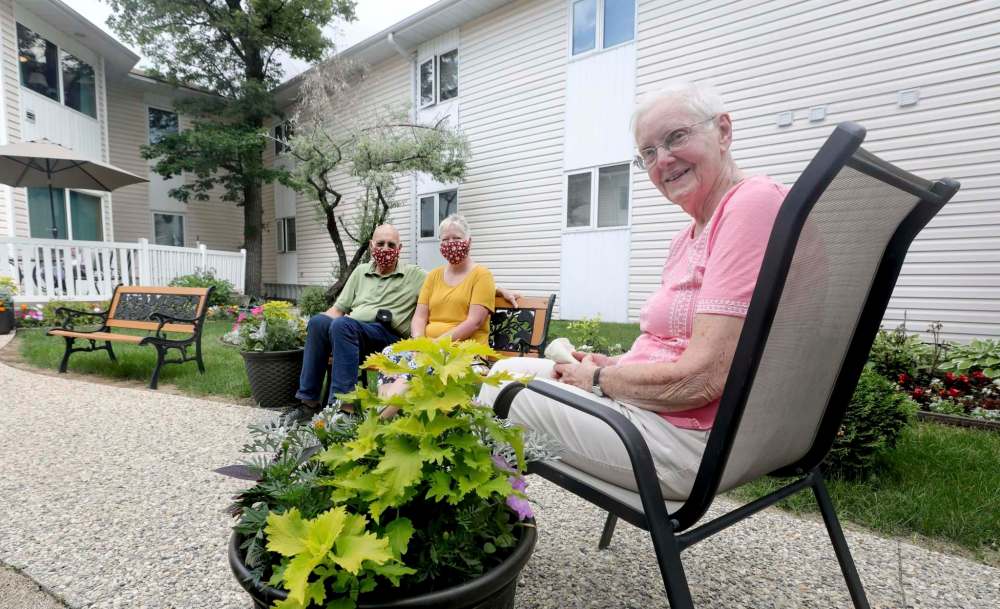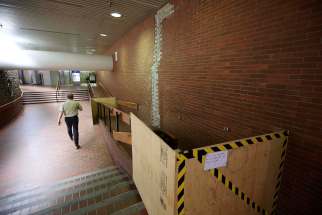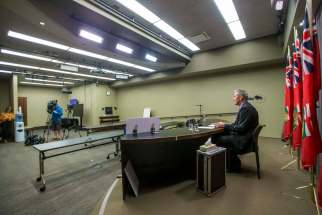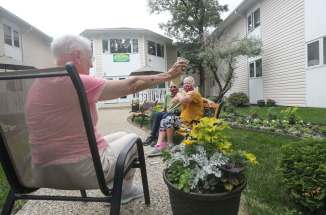Family access to care homes is essential
Read this article for free:
or
Already have an account? Log in here »
To continue reading, please subscribe:
Monthly Digital Subscription
$0 for the first 4 weeks*
- Enjoy unlimited reading on winnipegfreepress.com
- Read the E-Edition, our digital replica newspaper
- Access News Break, our award-winning app
- Play interactive puzzles
*No charge for 4 weeks then price increases to the regular rate of $19.00 plus GST every four weeks. Offer available to new and qualified returning subscribers only. Cancel any time.
Monthly Digital Subscription
$4.75/week*
- Enjoy unlimited reading on winnipegfreepress.com
- Read the E-Edition, our digital replica newspaper
- Access News Break, our award-winning app
- Play interactive puzzles
*Billed as $19 plus GST every four weeks. Cancel any time.
To continue reading, please subscribe:
Add Free Press access to your Brandon Sun subscription for only an additional
$1 for the first 4 weeks*
*Your next subscription payment will increase by $1.00 and you will be charged $16.99 plus GST for four weeks. After four weeks, your payment will increase to $23.99 plus GST every four weeks.
Read unlimited articles for free today:
or
Already have an account? Log in here »
Hey there, time traveller!
This article was published 23/06/2020 (1998 days ago), so information in it may no longer be current.
Among the most heartbreaking accounts of the COVID-19 pandemic are those from family members who have not been allowed to visit, console and care for their loved ones inside personal care homes. Behind the locked doors are elderly residents who suffer from pandemic stress and, often, confusion resulting from dementia. Outside the locked doors are family members who suffer because they’re helpless to assist their parents or grandparents.
Rainstorm shows benefit of indoor visits at care homes

Posted:
Visitors to nursing homes were allowed indoors for the first time during the pandemic Tuesday -- and it didn't come a day too soon.
It doesn’t have to be that way.
It’s understandable that personal care homes shut their facilities to visitors when COVID-19 first arrived in Manitoba. The crisis was unprecedented for health officials; aware that elderly people with existing health problems are most at risk, they erred on the side of caution by locking the facilities up tight to prevent visitors from bringing in the virus.
The past three months have shown, however, that such lockdowns can also have dire consequences, with repeated reports in Ontario, Quebec and British Columbia of residents left unattended in soiled diapers, suffering dehydration and inappropriately pacified with medication.
Even in institutions that are successfully avoiding COVID-19, isolating residents from their support networks can contribute to irreversible physical and mental declines. It’s estimated that 80 per cent of long-term care residents suffer from some form of dementia, an affliction that may cause confusion and despair about why family members have suddenly stopped visiting.
Manitoba has taken a small step toward helping residents of personal care homes stay connected with their loved ones, by announcing on Monday it plans to build all-season shelters outside personal care homes to let residents safely visit their loved ones. Also, starting Tuesday, the province allowed limited indoor visits by designated caregivers.
Such visitors to care homes would also provide a set of outside eyes to report problems to authorities before the operation descends to the inhumane conditions of some homes where COVID-19 ran riot.
The measures, outlined by Shared Health chief nursing officer Lanette Siragusa, are sensible and welcome, but they should be just first steps. On a permanent basis, family caregivers should be considered an essential service and allowed controlled access to Manitoba personal-care homes, including during crises such as pandemics.
Province to allow limited indoor visits at PCHs
Posted:
For the first time in more than three months, residents of personal care homes Tuesday will be able to visit with a loved one in the comfort of the great indoors.
It’s a change being promoted by CanAge, Canada’s national seniors advocacy group, which has been lobbying governments across the country. They’re not suggesting the doors of care homes be wide open to all visitors during pandemics, which would be foolhardy. Rather, they suggest certain individuals should be designated as essential family caregivers and — only after they are tested for COVID-19 and trained in pandemic comportment, including the safe use of personal protective equipment — be allowed regular access to care homes to help their loved ones with feeding, washing and reassuring companionship.
There are obvious advantages to care home residents if designated family members are allowed to visit during pandemics, but the change would also benefit staff. It has been repeatedly reported that care home workers are shamefully overworked and underpaid. They would appreciate the help of family members who have the time and vested interest to devote loving care to residents.
Such visitors to care homes would also provide a set of outside eyes to report problems to authorities before the operation descends to the inhumane conditions of some homes where COVID-19 ran riot.
Elderly residents shouldn’t be alone and frightened to the point of despair when they have family members willing and able to soothe them with reassuring attention. The decision to allow limited indoor visits this week is welcome, and should become permanent policy.
But designated family members should also be welcomed as essential partners of the care-home team. Their loved ones deserve as much.
Editorials are the consensus view of the Winnipeg Free Press’ editorial board.







